At the Meeting of the Council of Heads of founding states of the International Fund for Saving the Aral Sea (IFAS) in September 2023, the crucial role of water resources in the sustainable development of Central Asia was emphasized. The Parties expressed readiness to prioritize water issues in their strategies and development plans, affirming their commitment to collaboration in addressing water-energy challenges while considering the interests of all countries in the region.
One of the identified constraints in the region's achievement of economic and environmental sustainability and the resolution of complex transboundary water resource management issues was the shortage of human capital.
To address the human capital challenge, the Blue Peace Central Asia Initiative (BPCA) in collaboration with the WAVE Project, organized a Training of Trainers (ToT) on Water Diplomacy and International Water Law. The Blue Peace Central Asia initiative of the Swiss Agency on Development and Cooperation is implemented by the Regional Environmental Centre for Central Asia (CAREC). The International Water Secretariat (Canada) was a partner in this intervention.
"Undoubtedly, your (teachers') contribution to preparing future water diplomats and practitioners involved in advancing regional water cooperation in Central Asia is very important," highlighted Dimka Stantchev, Water Policy Adviser at the Swiss Agency for Development and Cooperation, in his welcoming remarks to the training participants.

According to the assessment of water education conducted by the USAID Regional Project on Water and Vulnerable Environment (WAVE), the region requires the training of a new format of water specialists - individuals ready to represent the interests of their countries in negotiation processes at global forums on water resources, the environment, and climate.
The WAVE project initiated the development of a comprehensive educational course for undergraduate and graduate students at universities in Central Asian countries. The foundation for this course was laid within the framework of the Blue Peace Central Asia Initiative (BPCA).
The training brought together 26 representatives from 21 universities, among whom the targeted beneficiaries were Diplomatic Academies and Academies of Public Administration affiliated with the Presidents of Central Asian countries.
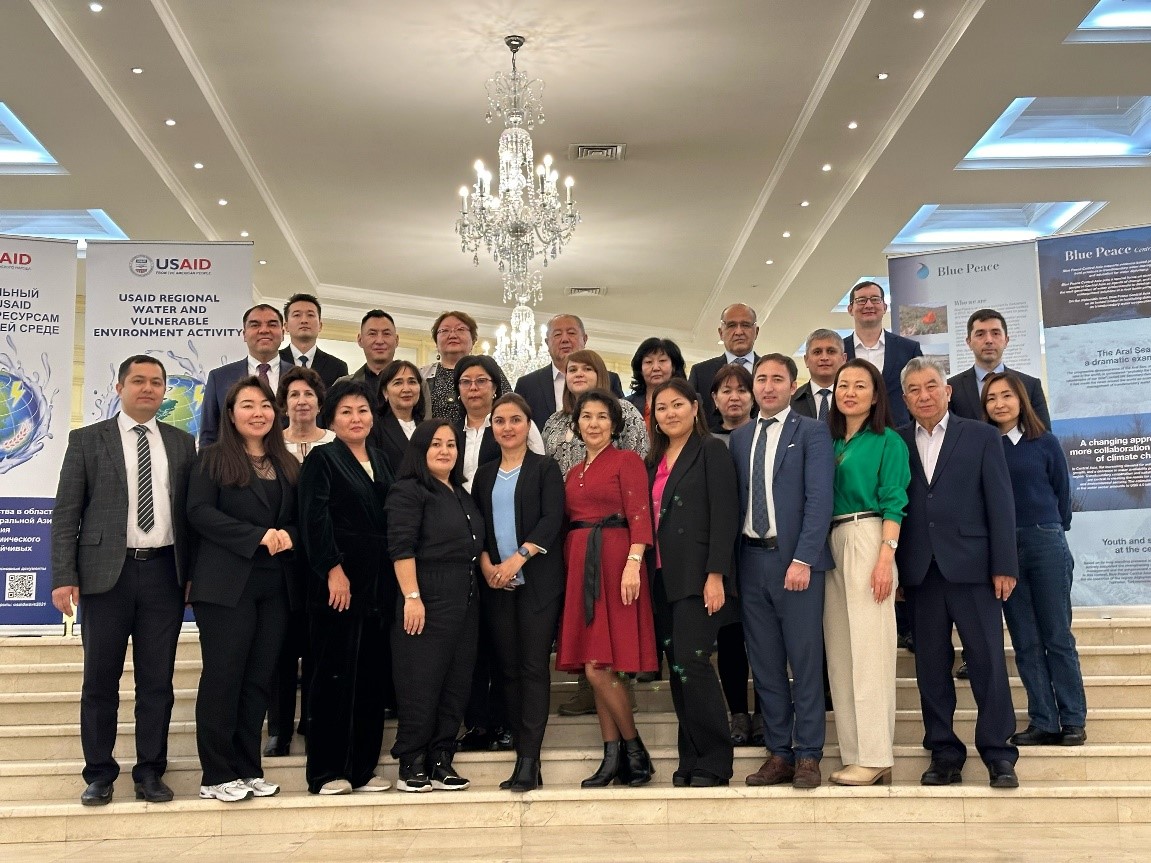
The goal of the ToT was to prepare instructors for the successful integration of the course into the educational process in Central Asian countries with the aim of forming a cohort of future water diplomacy specialists. The course content was developed in collaboration with members of the Network of Academic Societies (NAS).
The objectives of the ToT included:
1. Providing instructors with the conceptual foundations necessary for understanding the political aspects of water and the dynamics of cooperation;
2. Equipping teachers with practical tools related to water dispute management and mediation;
3. Training instructors in the fundamentals of international water law.
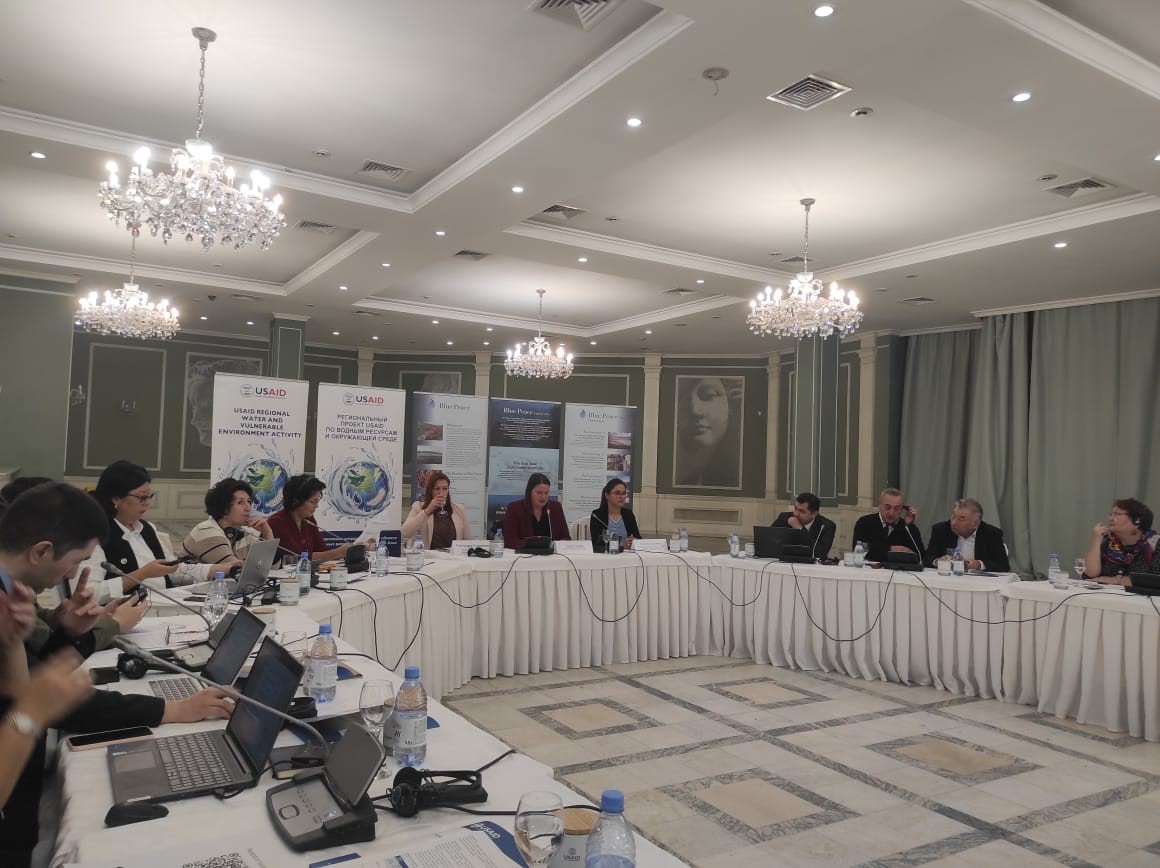
The first day of the training conducted by the experts from the WAVE Project focused on dissecting Module 1, which addressed the general water theme. Participants discussed the assessment of global water resources, theoretical foundations of water security, as well as the principles of transboundary waters and associated conflicts. The ToT covered the dynamics of water cooperation, triggers for conflicts, key actors in water diplomacy, and provided practical tools for conflict management.
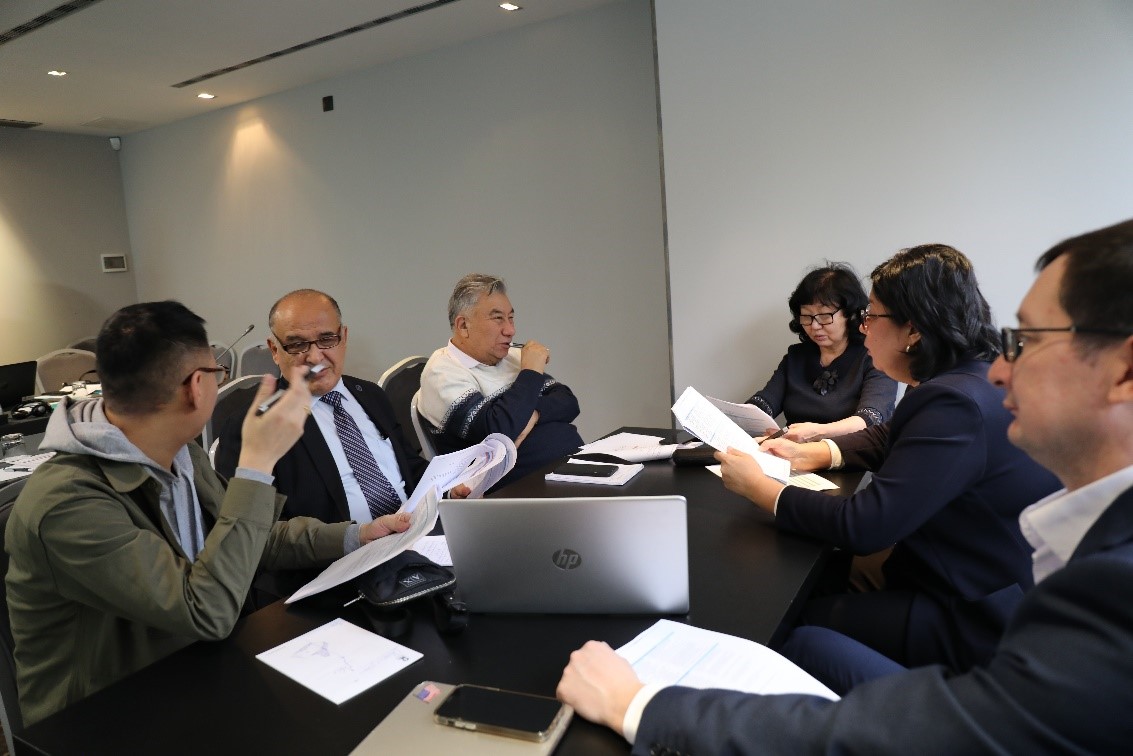
A notable aspect was the acknowledgment by the participants of their involvement in the track of informal diplomacy and the emphasis on the importance of maintaining cooperation at this level to lay the groundwork for formal collaboration between countries.
The second day of the training focused on Module 2, which included an overview of international water law and an analysis of case studies on institutional cooperation in global river basins, including the Central Asian region. Trainers provided participants with practical tools to study examples of inter-state cooperation in transboundary basins using the WEFE Nexus approach.
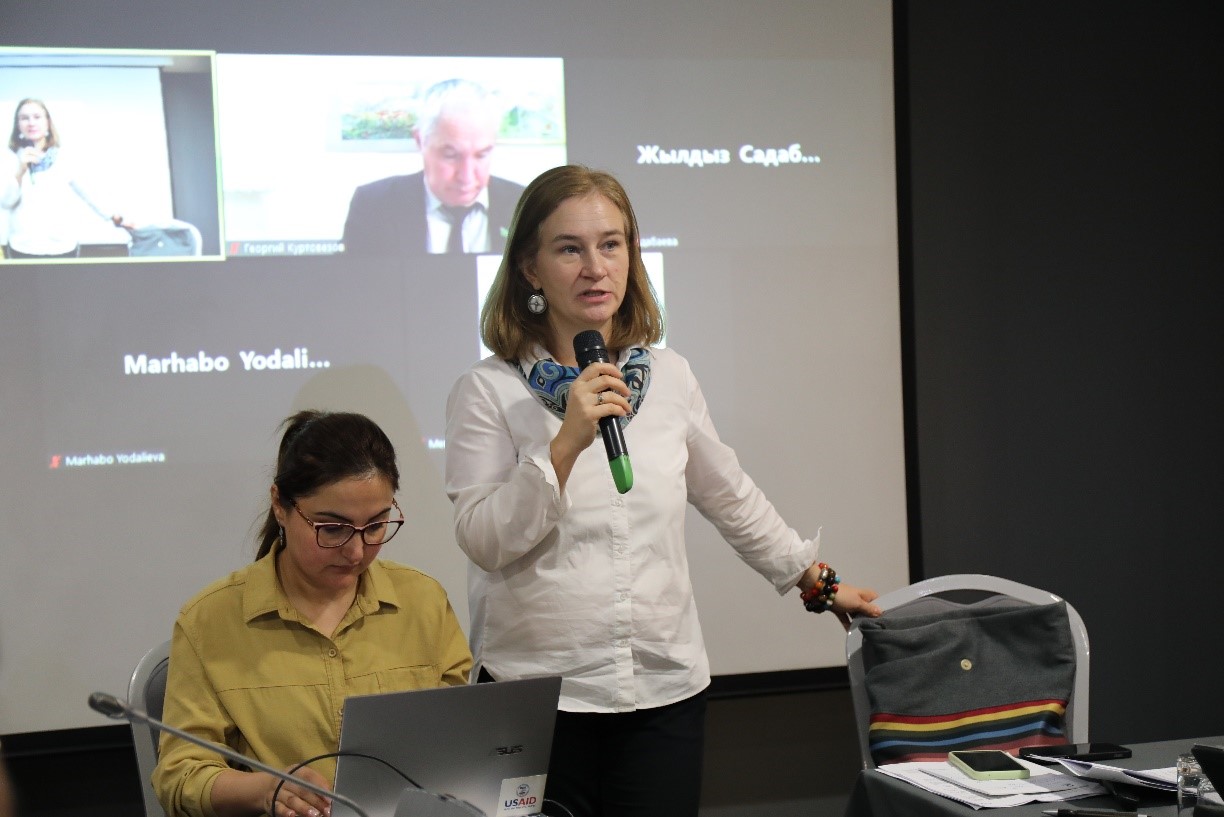
The third day of the training included a review of case studies on transboundary water management in Central Asia presented by national experts. It also featured a presentation by Professor Christian Brethaut from the University of Geneva on the concept of the water-energy-food nexus and its significance for water cooperation among the riparian countries of the basin. The day concluded with group work focusing on negotiation skills based on case studies from the region.
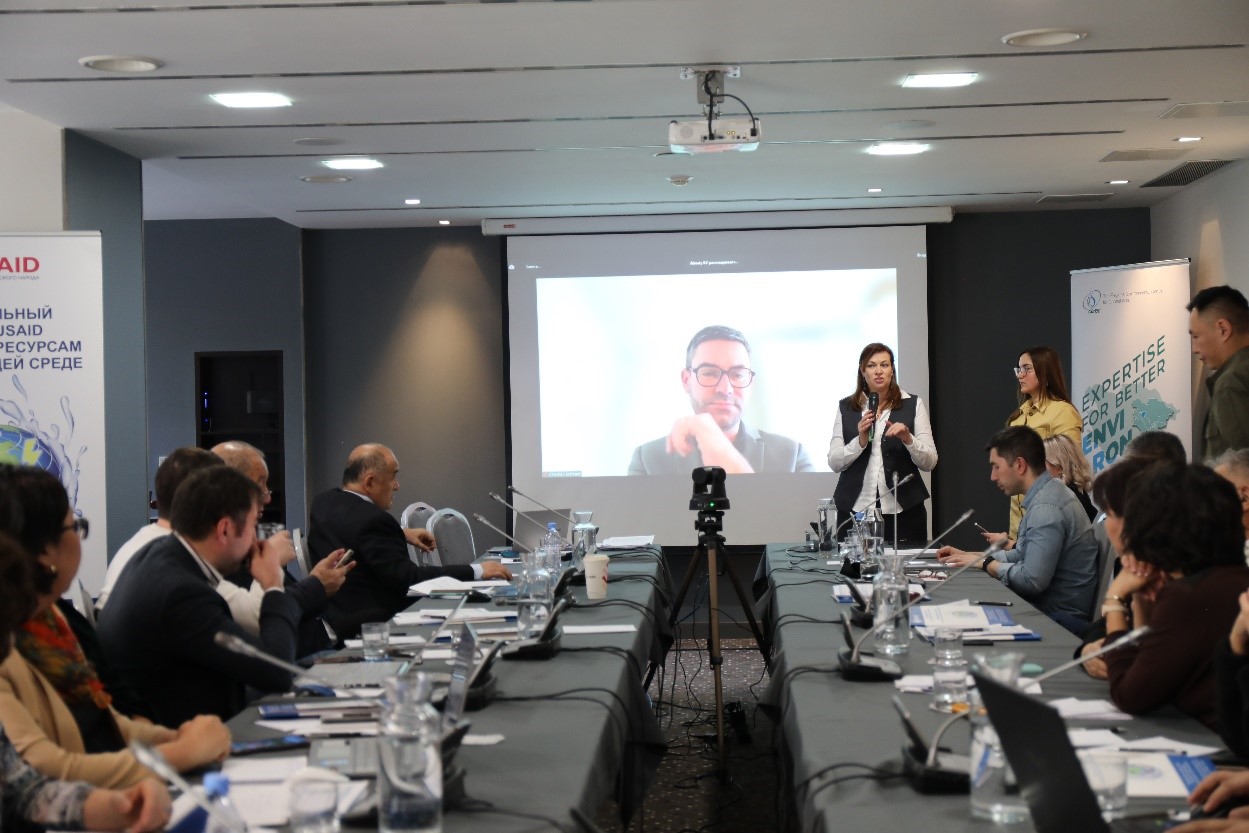
On the final day, a practical tool was introduced—the Blue Peace Index, designed to assess the sustainability of water resource management in transboundary river basins. Participants had the opportunity to familiarize themselves with the methodology for calculating the index, conducted by the Blue Peace Central Asia project team, and discuss its application for monitoring progress in water resource cooperation in the region, together with the methodology developer, SDC expert Matus Samel.
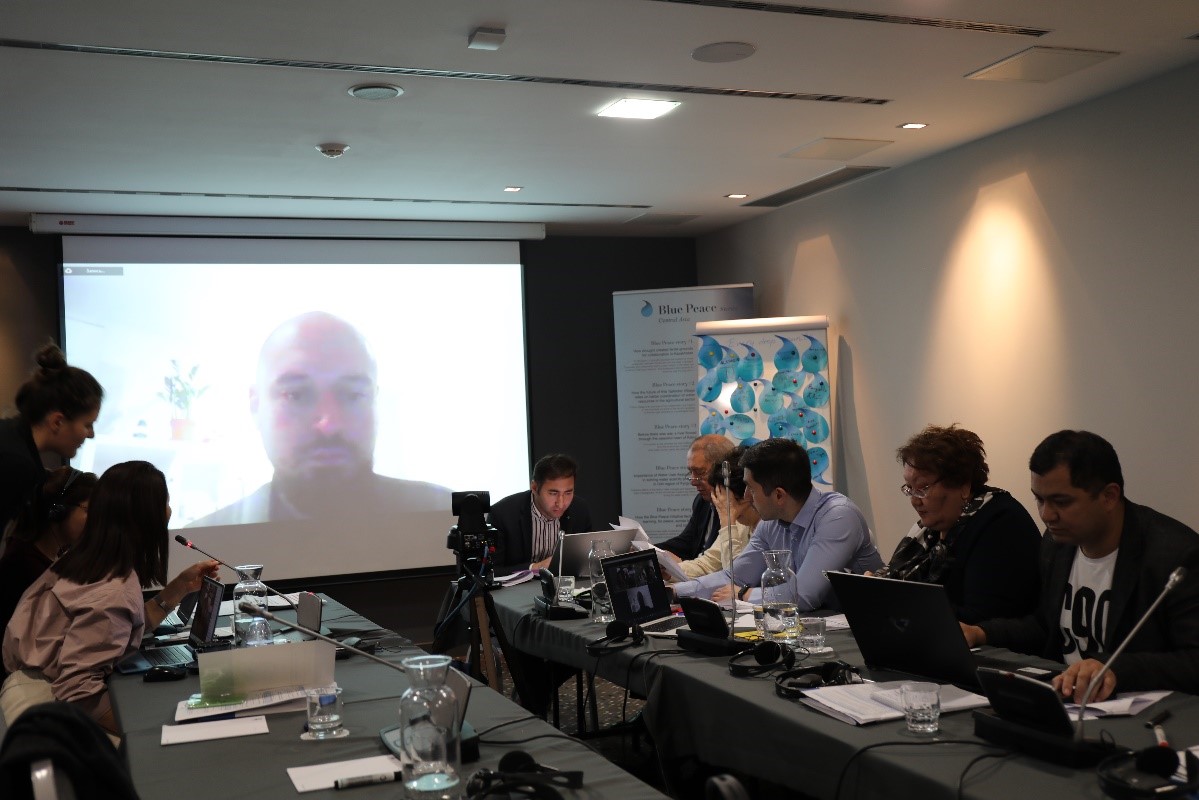
The methodology for calculating the Blue Peace Index was developed by the Economist Intelligence Unit (United Kingdom), which conducted an analysis of the index for seven key basins worldwide, including the Amu Darya and Syr Darya basins. Subsequently, the methodology was adapted and simplified for a broader audience by the International Secretariat for Water (Canada).
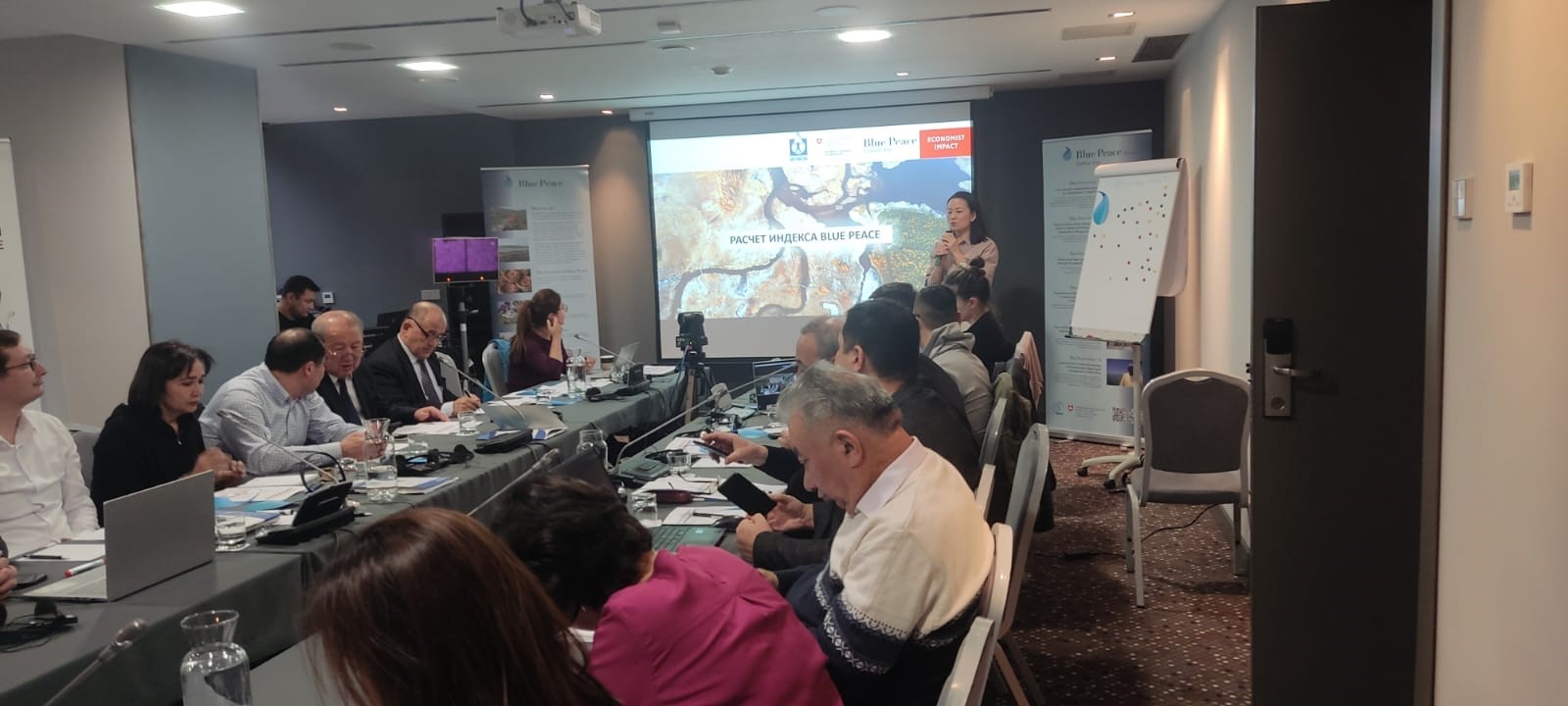
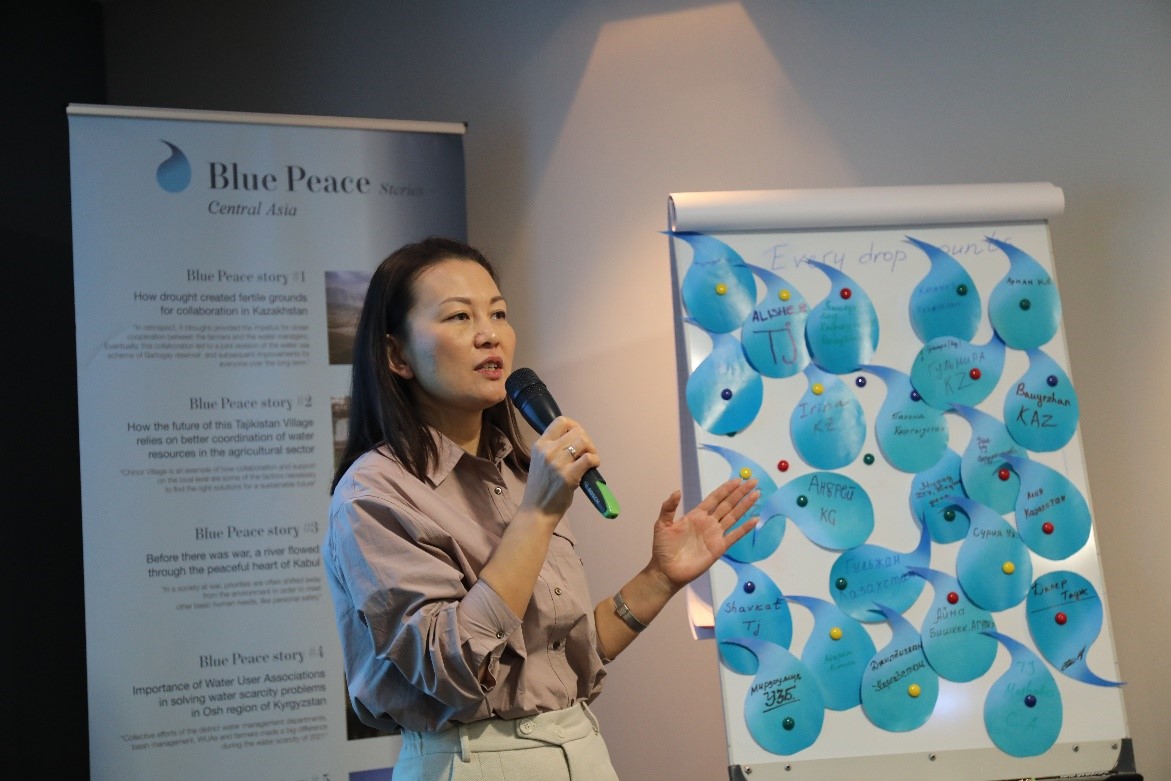
The training and the course, in general, received positive feedback from participants, with minor comments on refining the syllabus in accordance with accepted educational standards. The conclusion of the training included discussions on integrating the course into the educational process and developing a Roadmap for its adoption by the universities in Central Asia. The event's wrap-up concluded with the presentation of certificates.
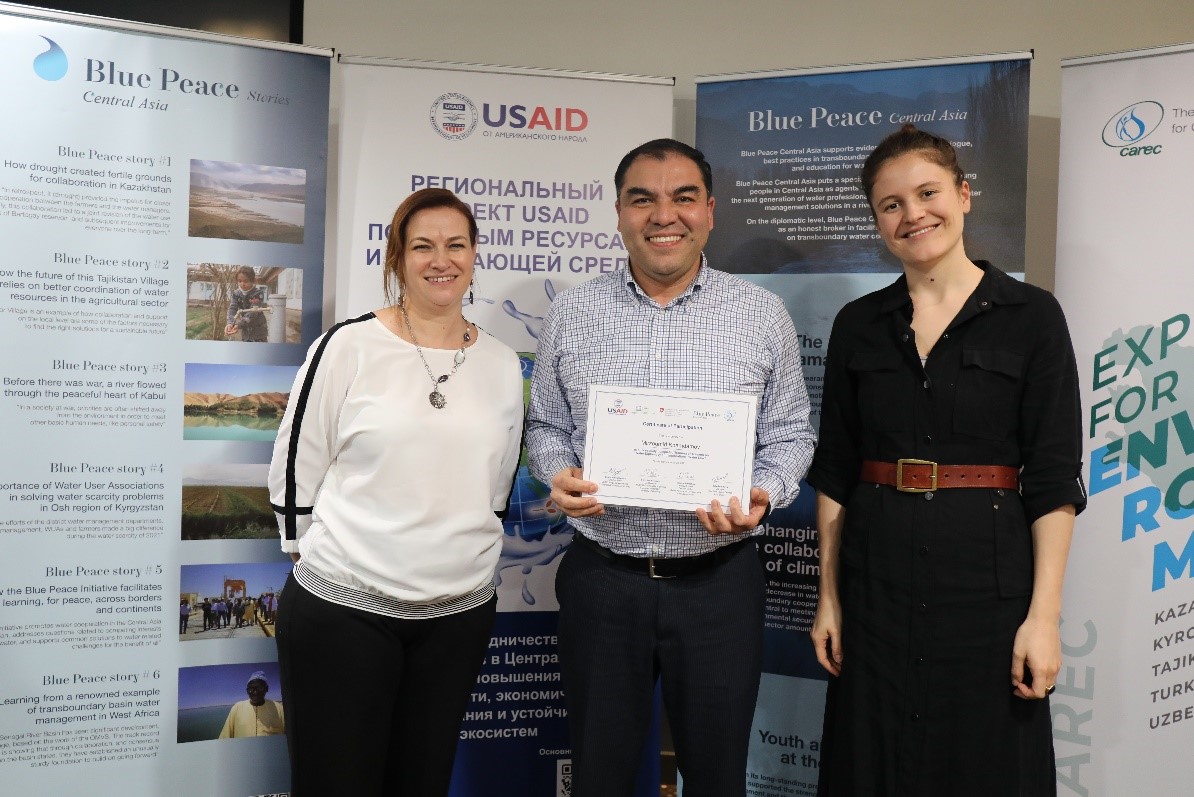
Training materials can be found here.
Concept of the training can be downloaded here.
